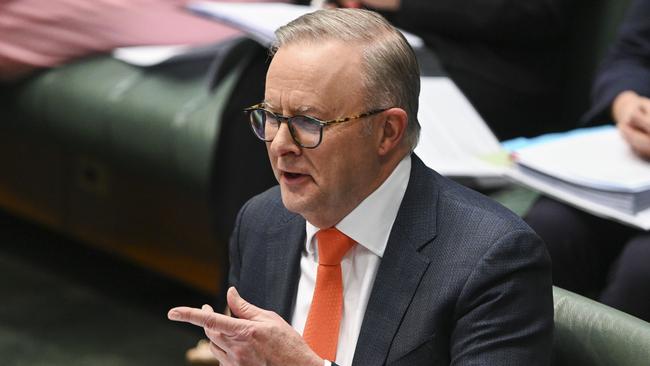
The Prime Minister will participate in the ASEAN-centric East Asia Summit in Jakarta, then spend half a day in Manila on a bilateral visit, before travelling to New Delhi for the G20 meeting.
China’s President, Xi Jinping, and US President Joe Biden are skipping the Jakarta EAS. This reflects poorly on both men, on their judgment and on their view of Southeast Asia.
Right now, Beijing’s regional diplomacy is a mess. It’s trying without success to turn the recently expanded BRICS (Brazil, Russia, India, China) into an anti-Western lobby. It just published a new map insulting Southeast Asians by claiming all the disputed islands and features of the South China Sea for itself.
Its Belt and Road investment program is a mess. And now Xi, presumably in a fit of pique, has taken to skipping regional summits. He is not attending the G20 summit either.
The Jakarta summit is a missed opportunity for Biden. The optics of the US President mixing freely with, and talking at length to, all the Southeast Asian leaders, while the Chinese President couldn’t be bothered showing up, would have been gold.
Australia exerted intense diplomatic effort to get the US, along with China, into the EAS. Now both superpowers are no-shows.
Here’s the brutal truth about ASEAN, its summits and meetings generally. In terms of its actual declarations and formal positions, it does nothing and achieves nothing. The code of conduct for the South China Sea which ASEAN is working out with Beijing is well into its third decade of negotiations. For several rounds of these negotiations we gullible journalists wrote about it as though it were something important that might have an impact in the real world.
Big mistake. I’m sure negotiations on it will still be under way should my infant grandson follow me into journalism.
This is not, however, a fundamental criticism of ASEAN. It has socialised Southeast Asian leaders into endless regional consultation and intermittently gets the attention of important global leaders.
For Australia, we must always attend everything we can involving ASEAN. The point of ASEAN is not doing something, but just being there.
ASEAN can never take a strong position on Chinese encroachments in the South China Sea because at least two ASEAN nations, Cambodia and Laos, are client states of Beijing. The original ASEAN powers – Indonesia, Malaysia, Singapore, Thailand and The Philippines – are more independent, as is Vietnam.
But international leaders should understand that just being at ASEAN is the achievement. The formal summit sessions are unspeakably dull, the formal bilateral meetings useful but scripted, but the informal contact with other leaders is priceless.
It’s also good that Albanese is going to The Philippines, for the first bilateral visit by an Australian PM in 20 years. That figure alone shows how monstrously Canberra has neglected The Philippines, a vitally important Southeast Asian state, virtually ever since Paul Keating left office.
It’s good that Albanese will be in Manila. It would be better if he were there for more than half a day. The Southeast Asian economic strategy the PM unveils in Jakarta is a useful set of aspirations, though there’s no particular reason to think it will come to fruition any more than any of the other trade reports.
This year’s G20 is a little odd in that there will be no Quad meeting this time. But the PM will attend a meeting of MITKA.
You’re not familiar with that acronym? It stands for Mexico, Indonesia, Turkey, Korea and Australia. These summits all suffer from acronymania. But there are worse things.




Anthony Albanese sets forth on a trip to Asia in which most of his summit activities will be entirely useless, but it is nonetheless intensely important that he attend.